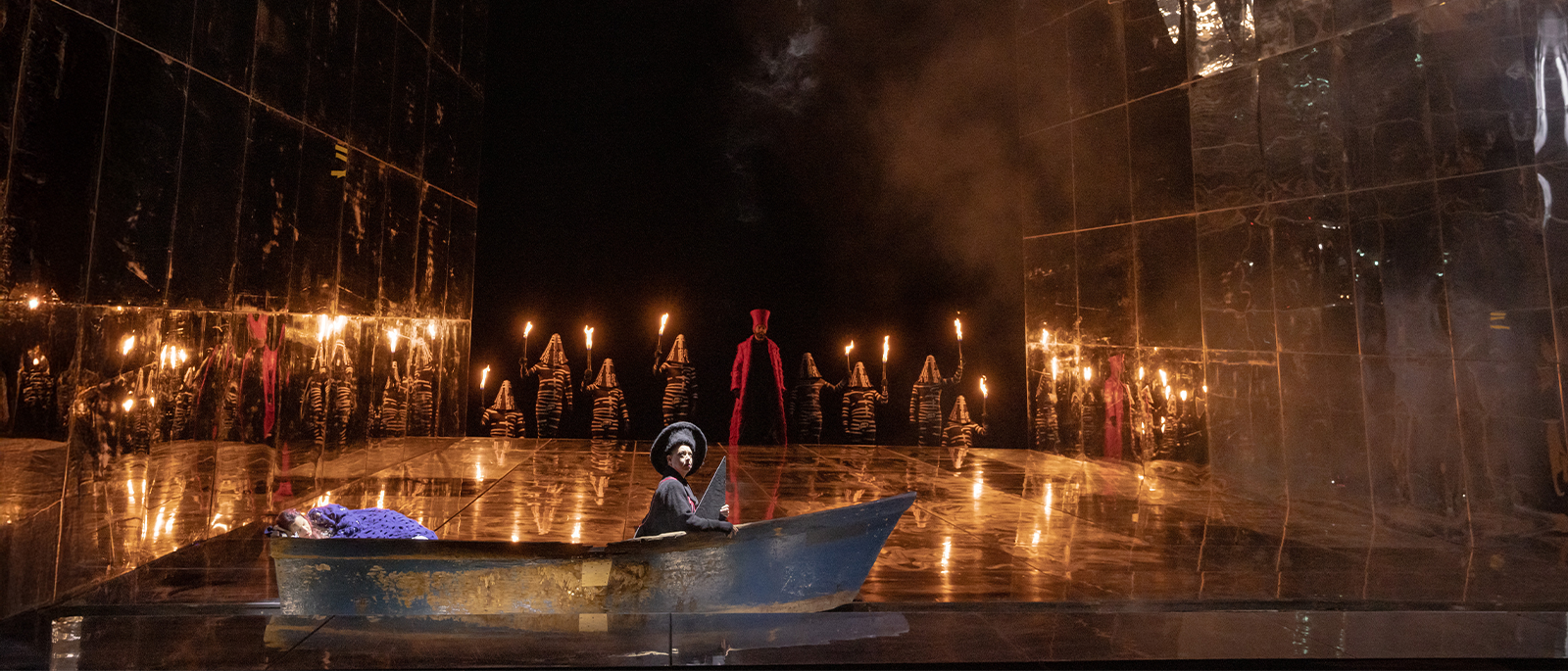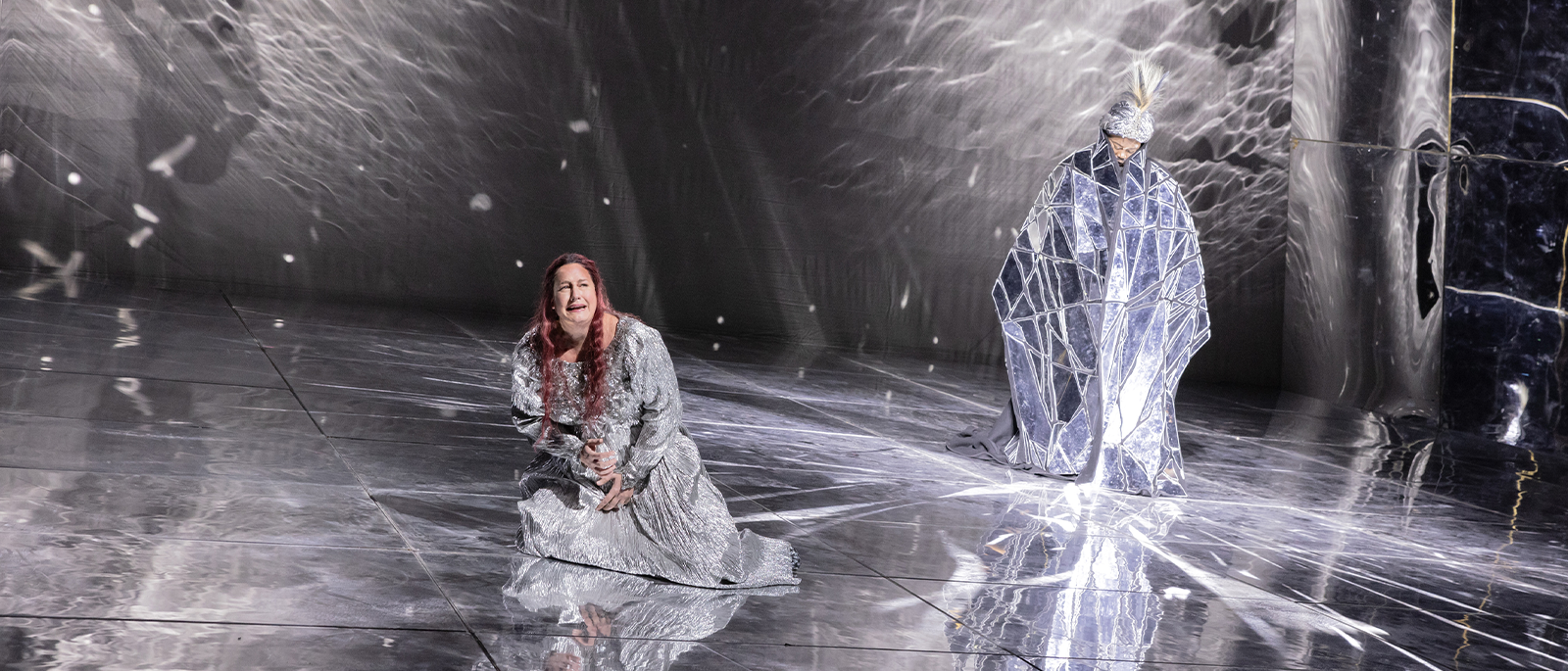
Richard Strauss
Die Frau ohne Schatten
This production ran: Nov 29 - Dec 19
This production is in the past.
Overview
Met Music Director Yannick Nézet-Séguin takes the podium to lead Strauss’s grand mythological epic, a tour de force for orchestra and soloists alike. A spectacular trio of sopranos lead the ensemble cast, with Elza van den Heever as the otherworldly Empress, Lise Lindstrom as the Dyer’s Wife, and Nina Stemme as the Nurse. Following recent triumphs in Wagner’s Ring cycle and Die Meistersinger von Nürnberg, baritone Michael Volle is Barak, with tenor Russell Thomas as the Emperor and bass-baritone Ryan Speedo Green as the Spirit Messenger.
Production a gift of a Managing Director and his wife
Revival a gift of Robert L. Turner
Languages
Languages sung in Die Frau ohne Schatten
Sung In
German
Titles
Title languages displayed for Die Frau ohne Schatten
Met Titles In
- English
- German
- Spanish
Timeline
Timeline for the show, Die Frau ohne Schatten
Estimated Run Time
4 hrs 10 mins
-
House Opens
-
Act I
65 mins
-
Intermission
30 mins
-
Act II
60 mins
-
Intermission
30 mins
-
Act III
65 mins
-
Opera Ends
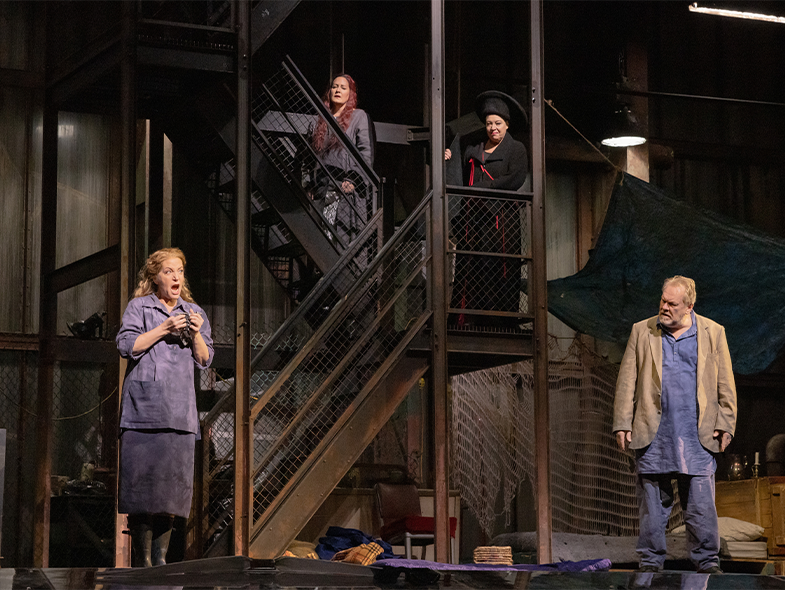
Premiere: Staatsoper, Vienna, 1919
The fourth collaboration of Richard Strauss and librettist Hugo von Hofmannsthal was in many ways their most ambitious: a heavily symbolic morality tale about love and marriage that unfolds in a fairy-tale world of multiple dimensions. Its five lead roles are daunting even by Strauss’s demanding standards, while the orchestral requirements and staging challenges alone assure this opera a unique spot in the repertory.
Creators
Richard Strauss (1864–1949) composed an impressive body of orchestral works and songs before turning to opera. After two early failures, Salome (1905) caused a theatrical sensation, and the balance of his long career was largely dedicated to the stage. His next opera, Elektra (1909), was his first collaboration with Hugo von Hofmannsthal (1874–1929), a partnership that became one of the most remarkable in theater history.
PRODUCTION
Herbert Wernicke
SET, COSTUME, AND LIGHTING DESIGNER
Herbert Wernicke
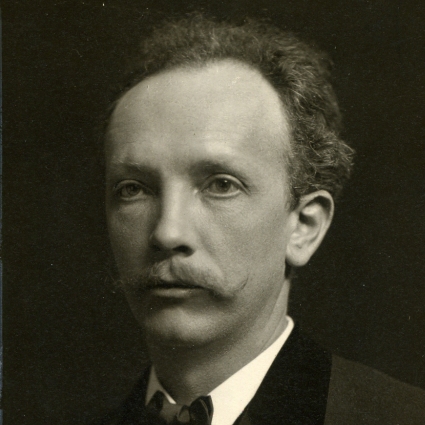
Composer
Richard Strauss
Setting
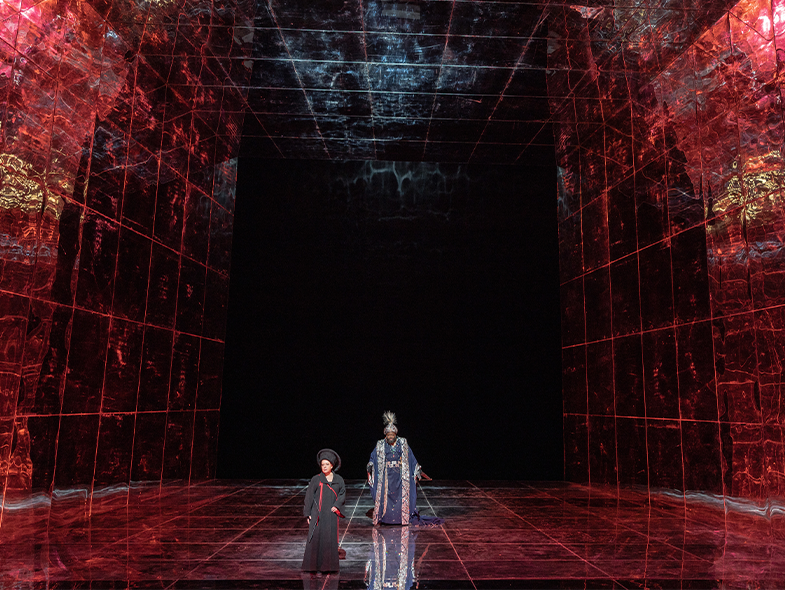
The opera takes place in the mythical Empire of the South Eastern Islands. The story moves between the humble dwelling of the Dyer and his Wife, in and around the palace of the Emperor and the Empress, in the forest, and in a grotto beneath the realm of the spirit god Keikobad.
Articles
Videos
Music
Strauss’s score calls for extraordinarily large musical forces, including an onstage orchestra of winds and brass (plus thunder machine and organ), in addition to a large pit orchestra with such augmentations as glass harmonica, two celestas, and an extravagant percussion section that features a slapstick, castanets, and Chinese gongs. The vocal writing is likewise remarkable, and all five lead roles require great strength, stamina, and musicality: beyond penetrating the dense orchestration, the singers are also expected to produce elegant and even delicate passages.
